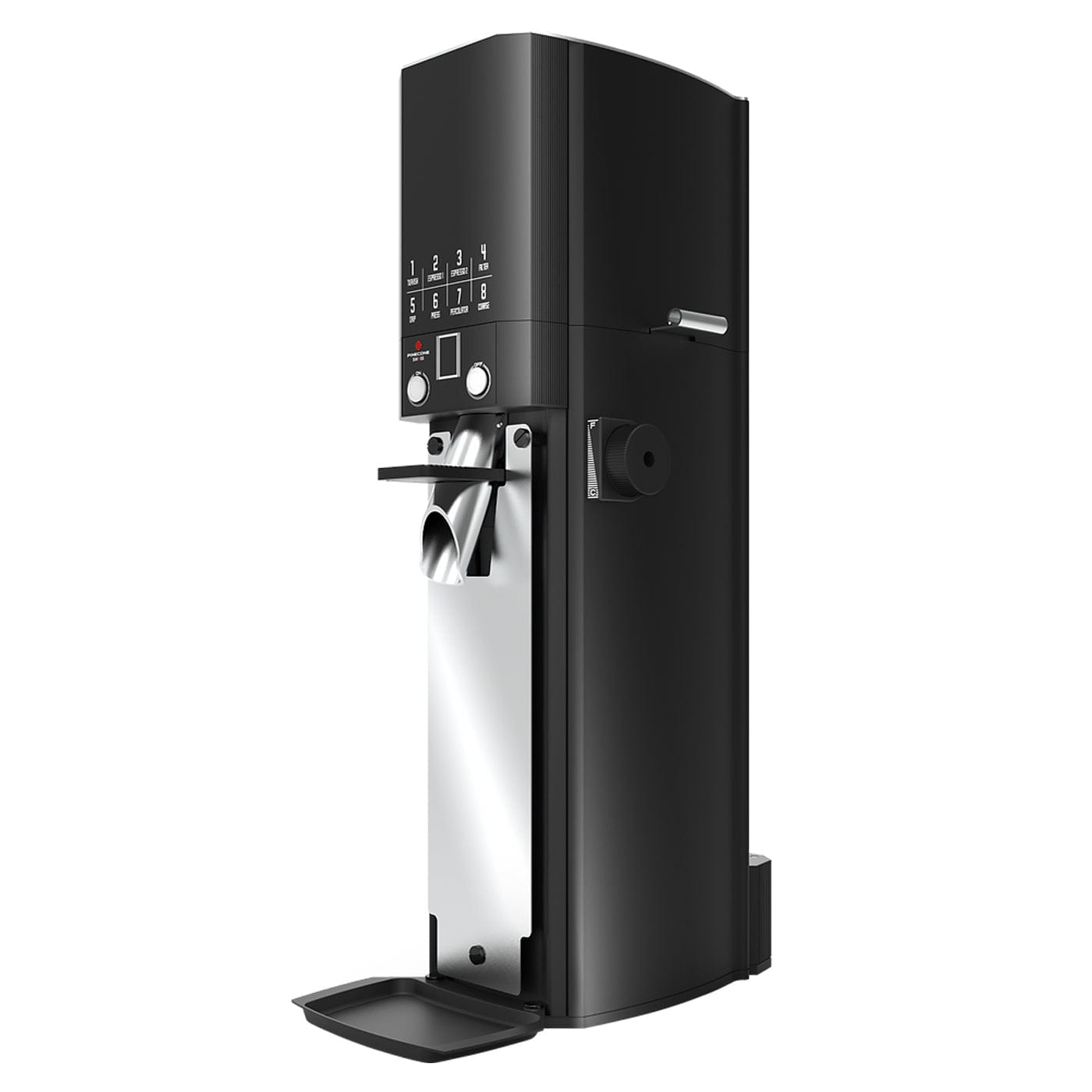Industrial Coffee Mill Overview: Increase Performance and High Quality
In the affordable landscape of coffee manufacturing, choosing the best industrial coffee grinder plays an essential role in improving both effectiveness and product high quality. Recognizing the subtleties of various mill types and key functions-- such as personalized work setups and robust building-- can dramatically influence the final flavor account of the coffee. The optimization of the grinding process, combined with diligent maintenance, is necessary for sustaining performance over time. As we explore these essential elements, it becomes evident that the effects prolong past simple tools selection, influencing total service success in methods that call for closer exam.
Understanding Grinder Types
When picking a commercial coffee grinder, understanding the different kinds available is critical for maximizing both flavor removal and functional efficiency. Both main kinds of mills are blade grinders and burr grinders. Blade mills utilize sharp blades that cut coffee beans into irregular sizes, leading to unequal removal and potentially unwanted tastes. While blade mills are commonly a lot more suitable and cost effective for small-scale operations, they are normally not suggested for commercial use.

Eventually, choosing the best kind of grinder is indispensable to keeping top quality and performance in coffee manufacturing, making it crucial for organizations to purchase premium burr grinders for optimum outcomes.
Key Features to Take Into Consideration
Choosing a commercial coffee mill calls for careful consideration of numerous essential functions that can significantly affect both efficiency and the general coffee experience. One of the primary elements to review is the grinding system. Burr grinders are typically favored over blade mills, as they supply a constant work dimension, which is essential for ideal removal and taste.
Another important attribute is the mill's capability. A functional grinder with several setups permits you to customize the grind size to different brewing techniques, improving the coffee's flavor account.
The building material also plays a role in sturdiness and upkeep. Stainless steel elements often provide durability and are simpler to clean up, which is vital for keeping health requirements. Examine the mill's sound degree, specifically in a busy coffee shop or manufacturing atmosphere, where excessive sound can be turbulent. Buying a grinder that stabilizes these attributes can substantially enhance both operational effectiveness and the top quality of the coffee served.
Optimizing Grinding Process
To attain the best results in coffee prep work, optimizing the grinding procedure is crucial. The grind dimension considerably affects removal, flavor, and general high quality of the brewed coffee.


In addition, keeping an eye on the grinding speed can enhance the process. Slower grinding often why not check here generates much less warm, maintaining delicate flavors and aromas. Conversely, faster grinding might generate too much warmth, adversely influencing the coffee's high quality.
Upkeep and Treatment Tips
Proper maintenance and care of industrial coffee mills are vital for ensuring optimal performance and durability. Routine cleaning is the structure of maintenance; deposit buildup can influence flavor and grinding performance. It is suggested to clean the grinder after each usage, wiping down the outside and getting rid of any coffee grounds from the burrs.
Additionally, examine the grinding burrs for deterioration. Plain burrs can jeopardize work uniformity, so they should be replaced as needed. Industrial Coffee Grinder. Occasionally calibrating the mill is additionally vital, as this preserves the preferred grind size for various brewing techniques
Lubrication of moving parts ought to be executed according to the maker's specs, as this decreases rubbing and prolongs the life of the tools. It is vital to use food-grade lubricating substances to guarantee safety and compliance with wellness regulations.
Lastly, maintain the mill in a stable and dry setting to avoid corrosion and deterioration. By adhering to these maintenance and treatment ideas, operators can boost the efficiency of their industrial coffee grinders while ensuring high-grade output and expanded operational life.
Return on Financial Investment Analysis
Reviewing the return on financial investment (ROI) for commercial coffee mills is important for companies seeking to maximize their coffee production abilities. A detailed ROI analysis helps establish the monetary feasibility of spending in high-quality mills, allowing organizations to evaluate the first expenses versus potential gains.
To perform a detailed ROI analysis, companies ought to think about numerous essential aspects. Evaluate the acquisition price of the mill, including setup and any type of necessary alterations to existing facilities. Next, calculate functional expenses, consisting of energy intake, maintenance costs, and labor effectiveness renovations. High-performance mills commonly bring about decreased grinding time and boosted throughput, which can substantially boost performance.
Furthermore, take into consideration the effect on item quality. Industrial Coffee Grinder. Superior grinders generate an even more consistent work size, which can boost flavor profiles and client satisfaction, eventually driving sales. By Read More Here boosting the quality of the final item, services can warrant higher pricing, resulting in boosted revenue
Verdict
In recap, a commercial coffee grinder plays a critical function in enhancing both performance and item quality within coffee production. By selecting top quality burr grinders equipped with vital functions such as adjustable grind settings and resilient building, services can guarantee optimum taste extraction. from this source Normal maintenance is crucial for maintaining mill efficiency and making the most of consumer fulfillment. Ultimately, the calculated investment in a reliable mill adds considerably to improved revenue and competition in the coffee market.
In the competitive landscape of coffee manufacturing, choosing the appropriate commercial coffee mill plays a crucial function in enhancing both efficiency and item quality. The 2 key types of grinders are blade mills and burr mills. Within the burr grinder classification, there are flat burr grinders and conical burr mills, each with its benefits. Burr grinders are usually favored over blade grinders, as they provide a regular work size, which is essential for optimal removal and flavor.
In recap, a commercial coffee grinder plays a pivotal duty in improving both efficiency and item high quality within coffee production.